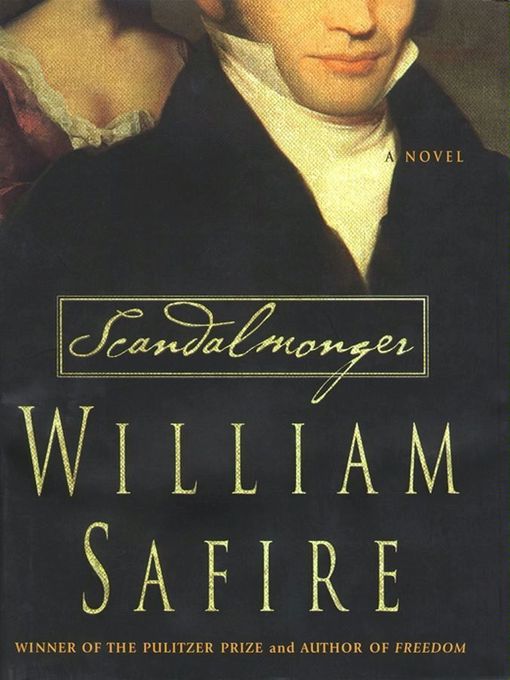
Scandalmonger
A Novel
کتاب های مرتبط
- اطلاعات
- نقد و بررسی
- دیدگاه کاربران
نقد و بررسی

January 31, 2000
Grammar maven, Pulitzer Prize-winner, novelist (Freedom) and erudite political columnist Safire delivers a sprawling, fact-based if somewhat stiffly written novel that will acquaint readers with several of the nation's first political scandals. In light of the recent White House brouhaha, it's fascinating to learn that in the days of the founding fathers, politicians were just as licentious and newspapermen even more scurrilous than some players in contemporary media. The narrative chronicles the career of James Thomson Callender, a Scottish immigrant pamphleteer whose sensational exposes of the private lives of public men destroyed reputations and altered the course of U.S. history. It is Callender who breaks the story about Treasury secretary Alexander Hamilton that forces Hamilton to admit to adultery in order to protect his business reputation. Later, Callender is charged with sedition, for issuing "a statement intended to incite the hatred of the people toward their government leaders." But he is not deterred from subsequently disseminating the story of Thomas Jefferson's liaison with his slave, "Luscious Sally" Hemings, herself the offspring of Jefferson's wife's father and a mulatto slave. Meticulously recreating the stories and dialogue from diaries, newspaper accounts and court transcripts (there are several trials involving libel), Safire delivers nicely rounded portraits of Washington, John Adams, Hamilton, Jefferson and Aaron Burr. Callender's own suspicious death closes the tale, a case of real life providing grist for melodrama. Always meticulous with facts, Safire adds an epilogue chronicling the fates of the major characters, followed by more than 50 pages of detailed notes and sources and a bibliography, all of which will be catnip to history buffs. Despite its heft, the novel moves along at a good clip, since Safire's use of short chapters, snippets of dialogue and frequent changes of scene creates narrative momentum. Agent, Lynn Nesbit.

October 15, 1999
Hoping to dig some dirt, a crusading newspaper editor works undercover on the payroll of a presidential aspirant--who happens to be Thomas Jefferson.
Copyright 1999 Library Journal, LLC Used with permission.

December 15, 1999
Safire, a senior columnist for the "New York Times" and a widely read language authority, presents his latest politically drenched, densely rendered novel. He draws his material from an actual historical episode: the first great scandal to rock the not-yet-secure federal government in the early years of the republic. As the story opens, President Washington's treasury secretary, Alexander Hamilton, is being investigated for untoward financial behavior. To defuse the situation, he admits to sexual misconduct, and the business is basically buried. Subsequently one James Thomson Callender, a newspaper editor, enters the national political arena. Callender's philosophy is, "When [a person] once comes forward as a candidate for public administration--then, I say, his opinions, his motives, every action of his life, public or private, become the fair subject of public discussion." How many times have you heard "that" opinion debated recently? Callender aims to publicly expose Hamilton's scandalous behavior of a few years back. He is applauded in his efforts by the anti-Hamilton followers of Thomas Jefferson; but when Jefferson eventually becomes president, Callender's expectations of reward are not realized, and he turns to exposing some very deep secrets from Jefferson's past. For any who still believe that sexual scandalmongering is something new in Washington, D.C., or that bitter partisanship did not exist in those hallowed days of the Founding Fathers, or that First Amendment issues are something only we in the present day wrestle with, let them read this novel and think again. ((Reviewed December 15, 1999))(Reprinted with permission of Booklist, copyright 1999, American Library Association.)

























دیدگاه کاربران